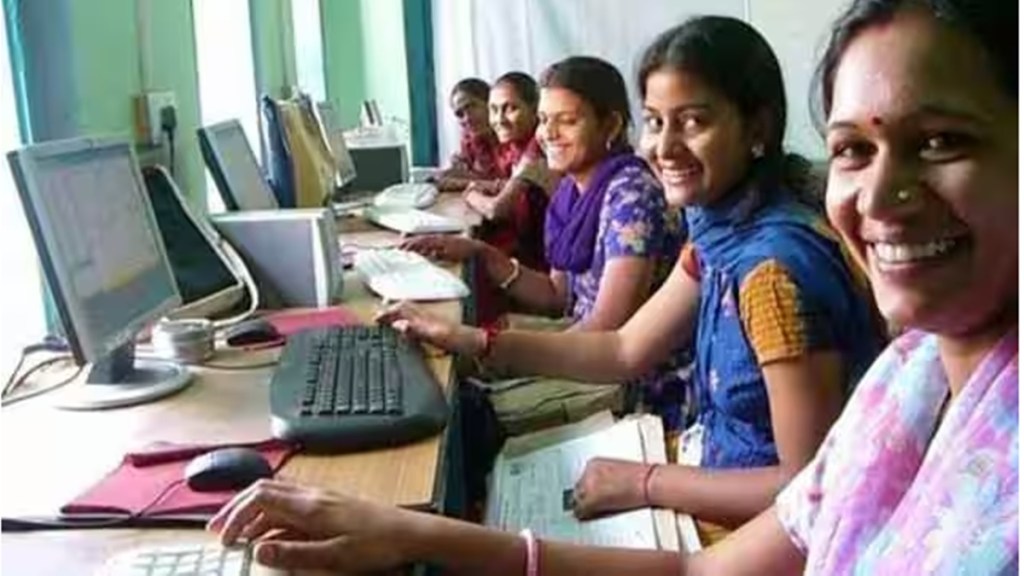By Priya Agarwal Hebbar
As we landed on the Moon, women were at the forefront, spearheading the critical aspects of the project and celebrating India’s achievement. From Chandrayaan to Mangalyaan, these rocket women are taking India to new frontiers and blazing the trail for many other women to work in previously male-dominated fields.
India, Bharat, Hindustan—by whatever name we call our nation, feminine power has always been central to our ethos. When someone speaks about nari shakti or women empowerment, I am always reminded of Shakti of our scriptures. Analogous to energy, power, movement, change and nature, Shakti is the source of life. Recently, I read about Shakti’s ‘Dance of Lasya’—the dance channeling cosmic chaos into creation, taming the wildfire of Shiva’s Tandav. Outside the scriptures, the power, grit, grace, and determination of women across the world is akin to this Dance of Lasya. The Chandrayaan-3’s landing spot getting named ‘Shiv Shakti’ is an ode to India’s rocket women.
At the recently concluded W20 track of G20, in Mahabalipuram, I met many inspiring women. It was humbling to see the passion with which every stalwart in the room discussed the importance of bringing women to the forefront of global development. According to the World Economic Forum’s 2022 Global Gender Gap Report, it will take 132 years for gender equality to become a reality and 151 years to close the economic participation and opportunity gender gap. We cannot wait for 150 years. The narrative needs to change now—and India is leading the change.
India is focused on women leading the development of our nation. On the 77th Independence Day, prime minister Narendra Modi said “the power of women-led development will take the country towards further progress”. The path to becoming a $5-trillion economy must include equity. We are progressing and we will not take 100 years.
Women are not only ensuring we reach the Moon but are also now leading operations below the ground. At Vedanta, our underground mines are being driven by women—whether it is blasting, heavy lifting, driving forklifts or training for rescue, women are doing it all.
Holding the G20 presidency, India has kept gender-parity as a key theme for global economic progress. G20 brings together countries that will shape the future of the world as we know it. It is thus extremely significant that women’s participation is at the forefront of the G20 development agenda.
The W20 communique released is testament to India’s leadership and commitment to women-led development. The communique is a strong message for all G20 nations to place women as drivers of growth and improve national gender strategies using gender-sensitive data. The communique urges every G20 government to establish an Annual Review Mechanism with key stakeholders to evaluate progress, gaps, and challenges. With a focus on climate change, entrepreneurship, gender digital divide, grassroots leadership and education, the communique has listed outcomes and recommendations to ensure meaningful representation of women in issues that impact gender parity across the world.
Among these, climate change has the most adverse effects. In a recently visit to Cairn Oil & Gas in Barmer, I met women living in the village closest to the border. Every day, up to 4-5 times a day, they have to walk much longer and further than they had to before, on burning hot dunes, to find water. According to a UN report, 80% of the people displaced by climate change are women. Further, climate change acts as a threat multiplier as socio-economic and gender inequalities are intensified, thereby posing unique threats to women’s health, livelihoods, and safety.
Those who are so severely affected need to be centrestage when climate action solutions are discussed and implemented. In a country with a population of 1.4 billion, one small change at every rung can become a mass movement. Women in India are the key drivers of lifestyle change. For example, women demanded dignity by asking for toilets to be built. For the first time in the country, PM Modi took upon himself to fulfil this ask and launched the Swachh Bharat Mission. Women became sanitation ambassadors and used their network to influence households to construct and use toilets within their communities.
Similarly, climate action needs to be a series of bold actions—led by women at every level—grassroots, households, board rooms and global forums. The communique advocates for exactly this and will be key in galvanising women-led development in G20 nations. Women all over the world are daily renegotiating societal norms, shining bright, working hard, and taking decisive steps towards equity. From boardrooms to the Moon, women are at the helm. As leaders of the G20 nations come together in Delhi this week, we need to break the silos and work as a collective to move towards the vision of 100% inclusivity. From government to grassroots, every voice should be heard. Every voice should matter.
The writer is non-executive director, Vedanta Ltd, and chairperson, Hindustan Zinc Ltd

